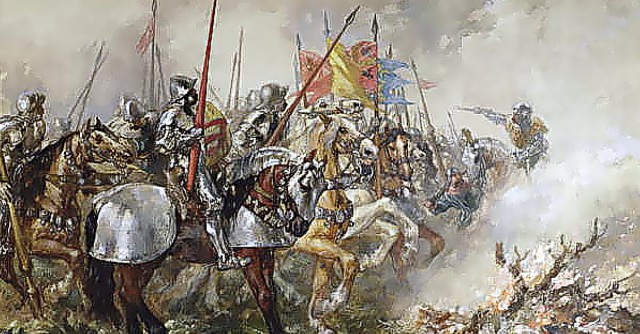
This year is the 600th anniversary of the Battle of Agincourt. An exhibition in Paris is due to open a new exhibition commemorating the battle in which Britain’s Henry V triumphed.
The battle took place in 1415 at the battlefield at Agincourt, Nord-Pas-de-Calais in France.
The start of the battle was on 25th October and to this day it remains a classic victory for the English on foreign soil but still incurs mixed feelings from both the British and French.
The battle took place on muddy ground between two woods. Henry V did not really want to fight the battle after a long and bloody siege of Harfleur just before. Further his Welsh and English army was tired, diseased and hungry, as well as being vastly outnumbered by a rested and ready French army.
It was a messy, bloody battle and many of the details still remain unconfirmed and or contested, particularly because of the surprising ending in favor of the British. The French suggest Henry’s army was a war machine and legend says he threatened his men with losing an ear if they tried to desert the battle.
Meanwhile the French are said to have threatened cutting off every English bowman’s fingers if they were captured.
At sunrise, the archers enabled the English to hold their position for three hours. After which, Henry decided to advance and the French charged. It was a disaster and the French were cut to pieces by the English archers who were firing around 10 arrows a minute each.
French reinforcements with heavy armor advanced on foot and waded through the muddy fields, but were killed as soon as they were in range.
Once the English archers had used all of their arrows the troops turned to axes, swords and mallets against the losing French side. It was a massacre, with many simply drowning or suffocating in the mud.
Historians believe the French lost between 4,000 and 10,000 troops, while the English are said to have lost around 1,500. Henry returned triumphant to a London welcome parade at the end of November, The Guardian reports.
Henry had got revenge for the Battle of Hastings in 1066. Shakespeare immortalised Henry V in his play of the same name, but he urges on the side of scepticism.
